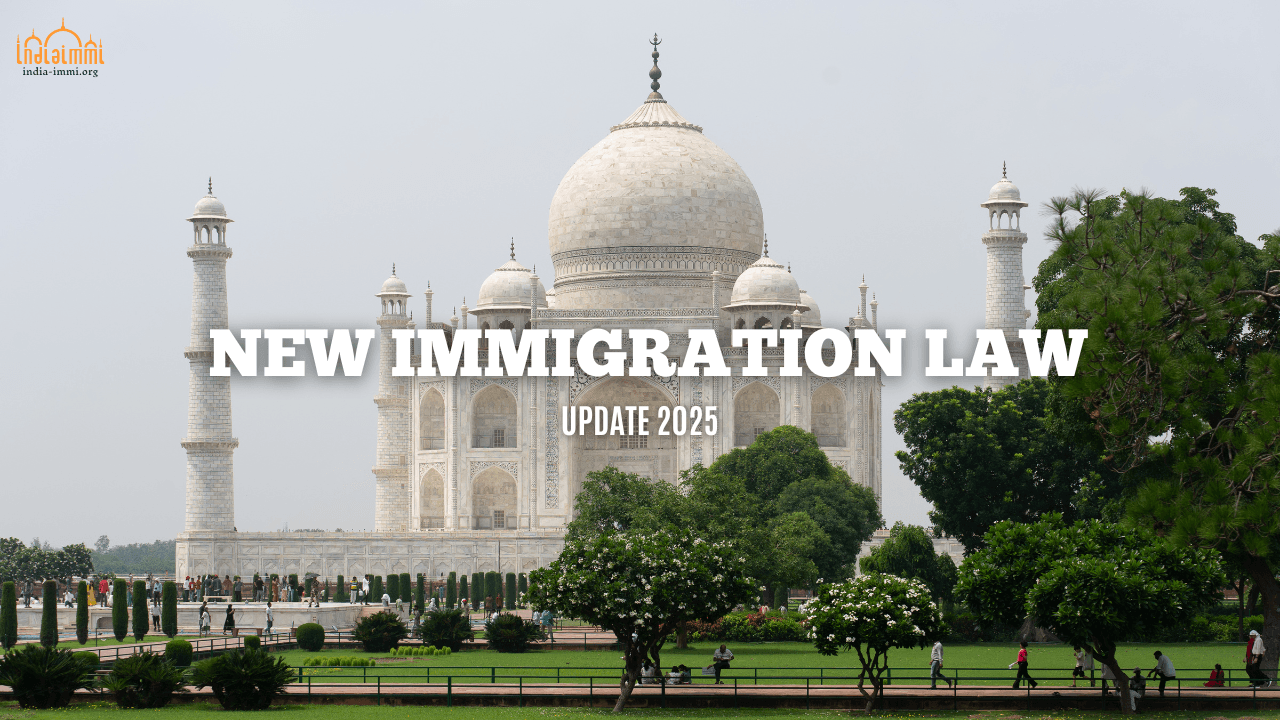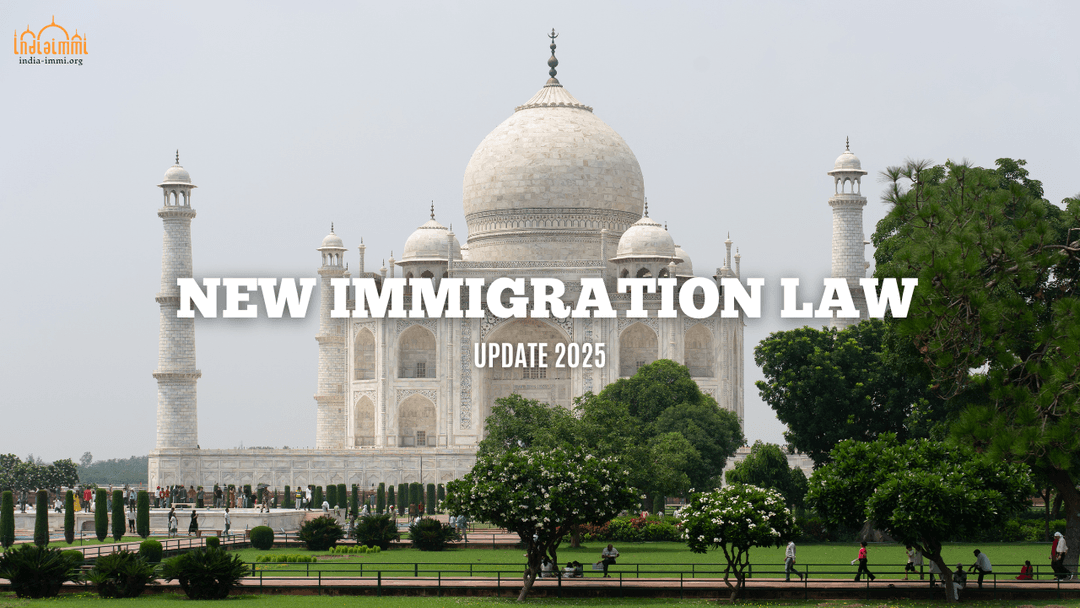In March 2025, the Indian Parliament officially passed the Immigration and Foreigners Act, 2025, a law expected to comprehensively change how the country manages the entry, residence, and exit of foreigners. This new act is considered a major milestone, not only to strengthen border security but also to provide greater transparency and convenience for tourists, students, professionals, and businesses seeking access to India.
This article will help you better understand the background, detailed provisions, and real-world impact of the law.
Why does India need a new immigration law?
Before the 2025 Act, India’s immigration system was regulated by multiple legislations, some of which were over a century old, including:
-
Passport (Entry into India) Act, 1920
-
Registration of Foreigners Act, 1939
-
Foreigners Act, 1946
-
Immigration (Carriers’ Liability) Act, 2000
The coexistence of these laws made implementation complicated, sometimes creating difficulties for both authorities and immigrants. In an era of globalization, India has increasingly become a hub for trade, technology, education, and healthcare, making immigration reform essential. The 2025 Act consolidates and replaces all older laws, creating a unified, modern, and transparent legal framework.
Timeline and Effectiveness
The bill was passed by the Lok Sabha on March 27, 2025, then approved by the Rajya Sabha and the President of India in early April 2025.
It will come into effect upon official publication in the Government Gazette. At that point, the new rules will apply, and previous legislations will cease to operate.
Key Highlights of the Immigration and Foreigners Act, 2025
Clear Categorization of Foreigners
For the first time, six main groups of foreigners are defined:
-
Tourists
-
International students
-
Skilled workers
-
Entrepreneurs and business visitors
-
Refugees and political asylum seekers
-
Illegal immigrants
This classification enables tailored policies for each group, enhancing clarity and fairness.
Standardized Visa System
The Act introduces a clear list of visa categories: tourism, study, work, research, medical, journalism, religious, asylum, minor, and transit. Overseas Citizen of India (OCI) cardholders also have separate provisions.
New technological measures include:
-
Online or embassy submission of applications
-
Biometric data (fingerprints and facial recognition) for long-term visas
These steps increase security and reduce forgery risks.
Mandatory Registration and Reporting
Foreigners must register with the Registration Officer upon arrival. Any change in address, marital status, or key personal details must be reported to the FRRO (Foreigners Regional Registration Office).
Failure to comply may result in fines, visa cancellation, or deportation.
Visa-specific Rights and Restrictions
- Tourist and student visa holders cannot work or conduct business.
- Business visa holders may engage in trade but cannot take up salaried employment.
These rules prevent misuse of visas.
Visa Cancellation and Rejection
The government may cancel or deny visas if:
-
False documents are submitted
-
Activities threaten national security or public order
-
The holder overstays the permitted period
Penalties and Deportation Measures
- Illegal immigrants may face detention, deportation, and blacklisting.
- Minor violations may lead to a 5-year entry ban.
- Repeat or severe violations can result in lifetime bans.
- Re-entry after deportation may carry prison sentences of up to 10 years.
Impact on Tourists, Students, and Businesses
-
Tourists: The process is clearer, but biometric requirements may lengthen approval time.
-
Students: Transparent procedures reduce fraud risks, but work restrictions remain strict.
-
Businesses and skilled workers: Benefit from streamlined policies, though loopholes are harder to exploit.
Long-term Benefits for India
-
National security: Stronger border control in a complex migration environment.
-
Legal transparency: A unified law reduces overlaps and confusion.
-
Investment and talent attraction: Predictable rules build confidence among investors and professionals.
-
Technological integration: Digital and biometric systems improve efficiency.
Conclusion
The Immigration and Foreigners Act, 2025 marks a significant step in modernizing India’s immigration system. It enhances security while ensuring transparency and accessibility for foreign visitors, students, professionals, and investors.
If you are planning to travel to India, don’t let paperwork slow you down. Apply today for an Indian e-Visa at India-immi.org for fast, safe, and comprehensive assistance.
📌 India-immi.org Contact Information:
Address: No. 40-42, Thien Phuoc Street, Tan Hoa Ward, Ho Chi Minh City
Hotline: +84.379.522.522
Email: sales@india-immi.org






